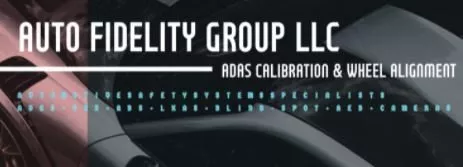Trust - - - - In the automotive business... trust goes both ways.
-
Available Subscriptions
-
Have you checked out Joe's Latest Blog?
-
By Joe Marconi in Joe's Blog0 commentsIt always amazes me when I hear about a technician who quits one repair shop to go work at another shop for less money. I know you have heard of this too, and you’ve probably asked yourself, “Can this be true? And Why?” The answer rests within the culture of the company. More specifically, the boss, manager, or a toxic work environment literally pushed the technician out the door.
While money and benefits tend to attract people to a company, it won’t keep them there. When a technician begins to look over the fence for greener grass, that is usually a sign that something is wrong within the workplace. It also means that his or her heart is probably already gone. If the issue is not resolved, no amount of money will keep that technician for the long term. The heart is always the first to leave. The last thing that leaves is the technician’s toolbox.
Shop owners: Focus more on employee retention than acquisition. This is not to say that you should not be constantly recruiting. You should. What it does means is that once you hire someone, your job isn’t over, that’s when it begins. Get to know your technicians. Build strong relationships. Have frequent one-on-ones. Engage in meaningful conversation. Find what truly motivates your technicians. You may be surprised that while money is a motivator, it’s usually not the prime motivator.
One last thing; the cost of technician turnover can be financially devastating. It also affects shop morale. Do all you can to create a workplace where technicians feel they are respected, recognized, and know that their work contributes to the overall success of the company. This will lead to improved morale and team spirit. Remember, when you see a technician’s toolbox rolling out of the bay on its way to another shop, the heart was most likely gone long before that.
-
-
Similar Topics
-
By carmcapriotto
The Weekly Blitz is brought to you by our friends over at Shop Marketing Pros. If you want to take your shop to the next level, you need great marketing. Shop Marketing Pros does top-tier marketing for top-tier shops.
Click here to learn more about Top Tier Marketing by Shop Marketing Pros and schedule a demo: https://shopmarketingpros.com/chris/
Check out their podcast here: https://autorepairmarketing.captivate.fm/
If you would like to join their private facebook group go here: https://www.facebook.com/groups/autorepairmarketingmastermind
SHOW NOTES
Throughout the episode, Coach Chris covers a range of pivotal topics that are crucial for business growth and sustainability. He discusses the potential benefits of real estate investments, drawing parallels to the Monopoly board where acquiring properties can lead to increased revenue and long-term financial gains. Additionally, he explores the concept of financial diversification, encouraging shop owners to explore various avenues for generating income beyond their core services.
A significant portion of the discussion is dedicated to the value of forming strategic partnerships and investing in employee development. Coach Chris emphasizes that nurturing relationships with other businesses and fostering a skilled workforce can lead to enhanced service offerings and a competitive edge in the market. He also highlights the critical role of cash flow management, advising shop owners on how to maintain a healthy financial status that supports both day-to-day operations and future growth initiatives.
Strategic expansion is another key theme, with Coach Chris providing insights on how to scale operations thoughtfully and sustainably. By aligning expansion efforts with clearly defined business objectives, shop owners can achieve financial stability and set the stage for long-term success.
Introduction and Overview (00:00:09)
Coach Chris Cotton introduces the podcast and its focus on auto repair business strategies.
Monopoly Metaphor (00:01:05)
Chris uses Monopoly to illustrate strategic business management and growth opportunities for shop owners.
Defining Your Business Size (00:02:03)
Discussion on ambitions regarding the size of the business—local, regional, or national expansion goals.
Opportunities for Growth (00:03:12)
Encouragement to view business opportunities as "squares" on a Monopoly board, representing growth potential.
Real Estate Investments (00:04:25)
The benefits of owning property, including passive income and stability for the auto repair business.
Diversification of Income Streams (00:05:28)
Exploration of additional income sources like storage facilities and rental properties to enhance financial security.
Financial Investments (00:06:41)
Importance of stocks and retirement accounts for long-term financial growth and stability beyond the auto industry.
Flexibility in Business Strategy (00:07:58)
The need for adaptability in response to unexpected challenges and opportunities in the business landscape.
Strategic Partnerships (00:08:41)
Value of collaborations with suppliers and other businesses to create growth opportunities and enhance profitability.
Employee Development (00:09:04)
Investing in team training and development as a critical factor for business success and employee retention.
Connect with Chris: chris autofixsos.com
Phone: 940.400.1008
www.autoshopcoaching.com
Facebook: https://www.facebook.com/
AutoFixAutoShopCo
Connect with Chris: chris autofixsos.com Phone: 940.400.1008 www.autoshopcoaching.com Facebook: https://www.facebook.com/ AutoFixAutoShopCoachingYoutube: https://bit.ly/3ClX0ae
www.autoshopcoaching.com
Facebook: https://www.facebook.com/ AutoFixAutoShopCoaching
Youtube: https://bit.ly/3ClX0ae
The Aftermarket Radio Network
Remarkable Results Radio Podcast with Carm Capriotto: Advancing the Aftermarket by Facilitating Wisdom Through Story Telling and Open Discussion
Diagnosing the Aftermarket A to Z with Matt Fanslow: From Diagnostics to Metallica and Mental Health, Matt Fanslow is Lifting the Hood on Life.
The Auto Repair Marketing Podcast with Kim and Brian Walker: Marketing Experts Brian & Kim Walker Work with Shop Owners to Take it to the Next Level.
The Weekly Blitz with Chris Cotton: Weekly Inspiration with Business Coach Chris Cotton from AutoFix - Auto Shop Coaching.
Business by the Numbers with Hunt Demarest: Understand the Numbers of Your Business with CPA Hunt Demarest.
Speak Up! Effective Communication with Craig O'Neill: Develop Interpersonal and Professional Communication Skills when Speaking to Audiences of Any Size.
To listen to more episodes, make sure and go over to iTunes and or Spotify.
Don't forget to rate and review us!
Connect with Chris:
AutoFix-Auto Shop Coaching
www.autoshopcoaching.com
www.aftermarketradionetwork.com
#autofixautoshopcoaching #autofixbeautofixing #autoshopprofits #autoshopprofit #autoshopprofitsfirst #autoshopleadership #autoshopmanagement #autorepairshopcoaching #autorepairshopconsulting #autorepairshoptraining #autorepairshop #autorepair #serviceadvisor #serviceadvisorefficiency #autorepairshopmarketing #theweeklyblitz #autofix #shopmarketingpros #autofixautoshopcoachingbook
Click to go to the Podcast on Remarkable Results Radio
-
By nptrb
Premium Member Content
This content is hidden to guests, one of the benefits of a paid membership. Please login or register to view this content.
-
By carmcapriotto
Brian and Parker dive into how strategic marketing investment can drive real growth for auto repair shops. Parker shares how increasing his marketing spend transformed his business, leading to record-breaking profits and industry recognition. They discuss why many shop owners hesitate to spend more on marketing and how cutting back can actually slow growth.
They break down the balance between brand-building and direct response marketing, highlighting how both contribute to long-term success. Parker shares insights from industry peer groups and how analyzing successful shops’ financials helped him refine his own strategy. They also explore how even small adjustments in marketing spend can make a big impact.
They explain what it takes to turn marketing into a growth engine, from increasing car count to boosting profitability. With real-world insights and proven strategies, they make the case for why now is the time for shop owners to commit to smarter marketing investments.
Thank you to our friends at RepairPal for this episode. RepairPal will introduce your shop to new customers through repairpal.com, the largest site for auto repair. Learn more at
RepairPal.com/shops.
Declined repairs don’t have to be lost revenue. AppFueled’s call center schedules follow-up calls and equips your team with everything they need to close the deal. Get started now at appfueled.com
Lagniappe (Books, Links, Other Podcasts, etc)
VISION Hi-Tech Training & Expo
Show Notes with Timestamps
How To Get In Touch
Join The Auto Repair Marketing Mastermind Group on Facebook
Meet The Pros
Follow SMP on Facebook
Follow SMP on Instagram
Get The Ultimate Guide to Auto Repair Shop Marketing Book
Email Us Podcast Questions or Topics
Thanks again for listening to The Auto Repair Marketing Podcast on Aftermarket Radio Network. There are some other great shows on the network and you can find them at AftermarketRadioNetwork.com or on your favorite podcast listening apps like Spotify, Apple Podcasts, Google Podcasts, and many others
Thanks to our Partners,
RepairPal at https://repairpal.com/shops. Quality Car Repair. Fair Price Guarantee.
App Fueled at appfueled.com. “Are you ready to convert clients to members? AppFueled™ specializes in creating custom apps tailored specifically for auto repair businesses. Build your first app like a pro.”
Aftermarket Radio Network
Remarkable Results Radio Podcast with Carm Capriotto: Advancing the Aftermarket by Facilitating Wisdom Through Story Telling and Open Discussion
Diagnosing the Aftermarket A to Z with Matt Fanslow: From Diagnostics to Metallica and Mental Health, Matt Fanslow is Lifting the Hood on Life.
The Weekly Blitz with Chris Cotton: Weekly Inspiration with Business Coach Chris Cotton from AutoFix - Auto Shop Coaching.
Speak Up! Effective Communication with Craig O'Neill: Develop Interpersonal and Professional Communication Skills when Speaking to Audiences of Any Size.
Business by the Numbers with Hunt Demarest: Understand the Numbers of Your Business with CPA Hunt Demarest.
The Auto Repair Marketing Podcast with Kim and Brian Walker: Marketing Experts Brian & Kim Walker Work with Shop Owners to Take it to the Next Level.
The Aftermarket Radio Network: https://aftermarketradionetwork.com/
Remarkable Results Radio Podcast with Carm Capriotto: Advancing the Aftermarket by Facilitating Wisdom Through Story Telling and Open Discussion. https://remarkableresults.biz/
Diagnosing the Aftermarket A to Z with Matt Fanslow: From Diagnostics to Metallica and Mental Health, Matt Fanslow is Lifting the Hood on Life. https://mattfanslow.captivate.fm/
Business by the Numbers with Hunt Demarest: Understand the Numbers of Your Business with CPA Hunt Demarest. https://huntdemarest.captivate.fm/
The Auto Repair Marketing Podcast with Kim and Brian Walker: Marketing Experts Brian & Kim Walker Work with Shop Owners to Take it to the Next Level. https://autorepairmarketing.captivate.fm/
The Weekly Blitz with Chris Cotton: Weekly Inspiration with Business Coach Chris Cotton from AutoFix - Auto Shop Coaching. https://chriscotton.captivate.fm/
Speak Up! Effective Communication with Craig O'Neill: Develop Interpersonal and Professional Communication Skills when Speaking to Audiences of Any Size. https://craigoneill.captivate.fm/
Click to go to the Podcast on Remarkable Results Radio
-
By Joe Marconi
Premium Member Content
This content is hidden to guests, one of the benefits of a paid membership. Please login or register to view this content.
-
-
By carmcapriotto
Brian and Hallie break down Google Local Services Ads (LSA) and how auto repair shops are using them to bring in more leads at lower costs. Unlike traditional Google Ads, LSA charges per lead instead of per click, making it a cost-effective approach to customer acquisition. Some shops have reported leads as low as $7 per call.
They cover how to set up LSA, key verification steps, and ways to optimize a shop’s Google Business Profile for better rankings. The discussion also explores how specialty shops can use LSA effectively and when Google Ads might still be useful.
With LSA now open to auto repair shops nationwide, early adopters have a clear advantage. Brian and Hallie explain how to make the most of it and why now is the best time to get started.
Thank you to our friends at RepairPal for providing you this episode. RepairPal is the key that unlocks more business for your repair shop. Learn More at RepairPal.com/shops.
AppFueled makes marketing easy. It’s a CRM designed for auto repair shops with tools like segmentation, reminders, and even a call center. Don’t wait—get started today at appfueled.com
Lagniappe (Books, Links, Other Podcasts, etc)
Google Local Service Ads
AutoOps - Scheduling Tools for Auto Shops
The Google Guarantee
Google Screened
Keywords in Reviews – Adding Fuel to the Fire
Show Notes with Timestamps
Introduction to the Episode (00:00:01) Brian Walker introduces the podcast and guest, Hallie Wassinger, discussing the importance of Google Local Services Ads. Overview of Google Local Services Ads (00:02:53) Hallie explains the recent availability of Google Local Services Ads for auto repair shops across the U.S. Historical Context of Local Services Ads (00:03:25) Discussion on the past availability of Google Guaranteed Ads and their expansion to auto repair shops. Current Availability and Limitations (00:04:38) Hallie details the current state of Local Services Ads for tire shops and their limited availability. Cost Structure of Local Services Ads (00:05:34) Introduction to the pay-per-lead model, highlighting its differences from traditional Google Ads. Service Categories for Auto Repair (00:06:45) Hallie outlines the specific services auto repair shops can advertise under Local Services Ads. Lead Generation Process (00:07:44) Explanation of how leads are generated through phone calls or messages via the Local Services Ads dashboard. Ongoing Maintenance of Ads (00:08:31) Discussion on the necessity of monitoring and rating leads to optimize the ad performance. Success Stories from Beta Testing (00:10:55) Brian shares a success story from Chris Cotton, highlighting low lead costs achieved through Local Services Ads. Lead Cost Insights (00:11:39) Hallie provides average lead cost data, emphasizing the effectiveness of the ads for auto repair shops. Visibility of Local Services Ads (00:12:18) Brian describes how Local Services Ads appear prominently in search results, enhancing visibility. Google Screened vs. Google Guaranteed (00:13:02) Hallie explains the differences between Google Screened and Google Guaranteed, focusing on their application processes. RepairPal Sponsorship Message (00:14:27) Brian thanks RepairPal for sponsoring the episode and discusses the benefits of being in their certified network. App Fueled Sponsorship Message (00:15:32) Brian introduces App Fueled, promoting their customer loyalty app for auto repair shops. Verification Process for Shops (00:16:33) Hallie outlines the verification process for shops to join Google Local Services Ads, including necessary checks. Verification Steps for LSA (00:16:50) Overview of the verification process for auto repair shops applying for Google Local Services Ads. Challenges with Specialty Shops (00:19:14) Discussion on difficulties specialty shops face with Google Local Services Ads targeting. Specialization in Google Ads (00:20:03) Insights on why specialized shops may benefit more from traditional Google Ads. Opportunities with LSA (00:22:05) Exploration of the current opportunities available for shops using Google Local Services Ads. Cost Benefits of LSA (00:23:13) Comparison of lead costs between Google Local Services Ads and traditional Google Ads. Importance of Google Business Profile (00:24:29) Discussion on how optimizing Google Business Profiles impacts LSA ad performance. Role of Reviews in SEO (00:27:40) Emphasis on the significance of keywords in customer reviews for improving visibility. Optimizing Photos for LSA (00:29:42) Best practices for managing and updating photos in Google Local Services Ads. Pricing for LSA Management (00:31:01) Details on the costs associated with managing Google Local Services Ads for shops. Introduction to LSA (00:33:47) Discussion on the performance of Google Local Services Ads and how to get started. Discovery Call Process (00:34:15) Details on scheduling a discovery call and assessing local competition for LSA. Final Thoughts on LSA (00:34:38) Emphasis on the importance of early adoption of LSA for auto repair shops. Self-Management of LSA (00:34:40) Advice on running LSA independently, highlighting the required time and dedication. Closing Remarks (00:35:29) Thanking listeners and sponsors, and encouraging engagement with the podcast.
How To Get In Touch
Join The Auto Repair Marketing Mastermind Group on Facebook
Meet The Pros
Follow SMP on Facebook
Follow SMP on Instagram
Get The Ultimate Guide to Auto Repair Shop Marketing Book
Email Us Podcast Questions or Topics
Thanks again for listening to The Auto Repair Marketing Podcast on Aftermarket Radio Network. There are some other great shows on the network and you can find them at AftermarketRadioNetwork.com or on your favorite podcast listening apps like Spotify, Apple Podcasts, Google Podcasts, and many others
Thanks to our Partners,
RepairPal at https://repairpal.com/shops. Quality Car Repair. Fair Price Guarantee.
App Fueled at appfueled.com. “Are you ready to convert clients to members? AppFueled™ specializes in creating custom apps tailored specifically for auto repair businesses. Build your first app like a pro.”
Aftermarket Radio Network
Remarkable Results Radio Podcast with Carm Capriotto: Advancing the Aftermarket by Facilitating Wisdom Through Story Telling and Open Discussion
Diagnosing the Aftermarket A to Z with Matt Fanslow: From Diagnostics to Metallica and Mental Health, Matt Fanslow is Lifting the Hood on Life.
The Weekly Blitz with Chris Cotton: Weekly Inspiration with Business Coach Chris Cotton from AutoFix - Auto Shop Coaching.
Speak Up! Effective Communication with Craig O'Neill: Develop Interpersonal and Professional Communication Skills when Speaking to Audiences of Any Size.
Business by the Numbers with Hunt Demarest: Understand the Numbers of Your Business with CPA Hunt Demarest.
The Auto Repair Marketing Podcast with Kim and Brian Walker: Marketing Experts Brian & Kim Walker Work with Shop Owners to Take it to the Next Level.
The Aftermarket Radio Network: https://aftermarketradionetwork.com/
Remarkable Results Radio Podcast with Carm Capriotto: Advancing the Aftermarket by Facilitating Wisdom Through Story Telling and Open Discussion. https://remarkableresults.biz/
Diagnosing the Aftermarket A to Z with Matt Fanslow: From Diagnostics to Metallica and Mental Health, Matt Fanslow is Lifting the Hood on Life. https://mattfanslow.captivate.fm/
Business by the Numbers with Hunt Demarest: Understand the Numbers of Your Business with CPA Hunt Demarest. https://huntdemarest.captivate.fm/
The Auto Repair Marketing Podcast with Kim and Brian Walker: Marketing Experts Brian & Kim Walker Work with Shop Owners to Take it to the Next Level. https://autorepairmarketing.captivate.fm/
The Weekly Blitz with Chris Cotton: Weekly Inspiration with Business Coach Chris Cotton from AutoFix - Auto Shop Coaching. https://chriscotton.captivate.fm/
Speak Up! Effective Communication with Craig O'Neill: Develop Interpersonal and Professional Communication Skills when Speaking to Audiences of Any Size. https://craigoneill.captivate.fm/
Click to go to the Podcast on Remarkable Results Radio
-
-
-
Our Sponsors














Recommended Posts